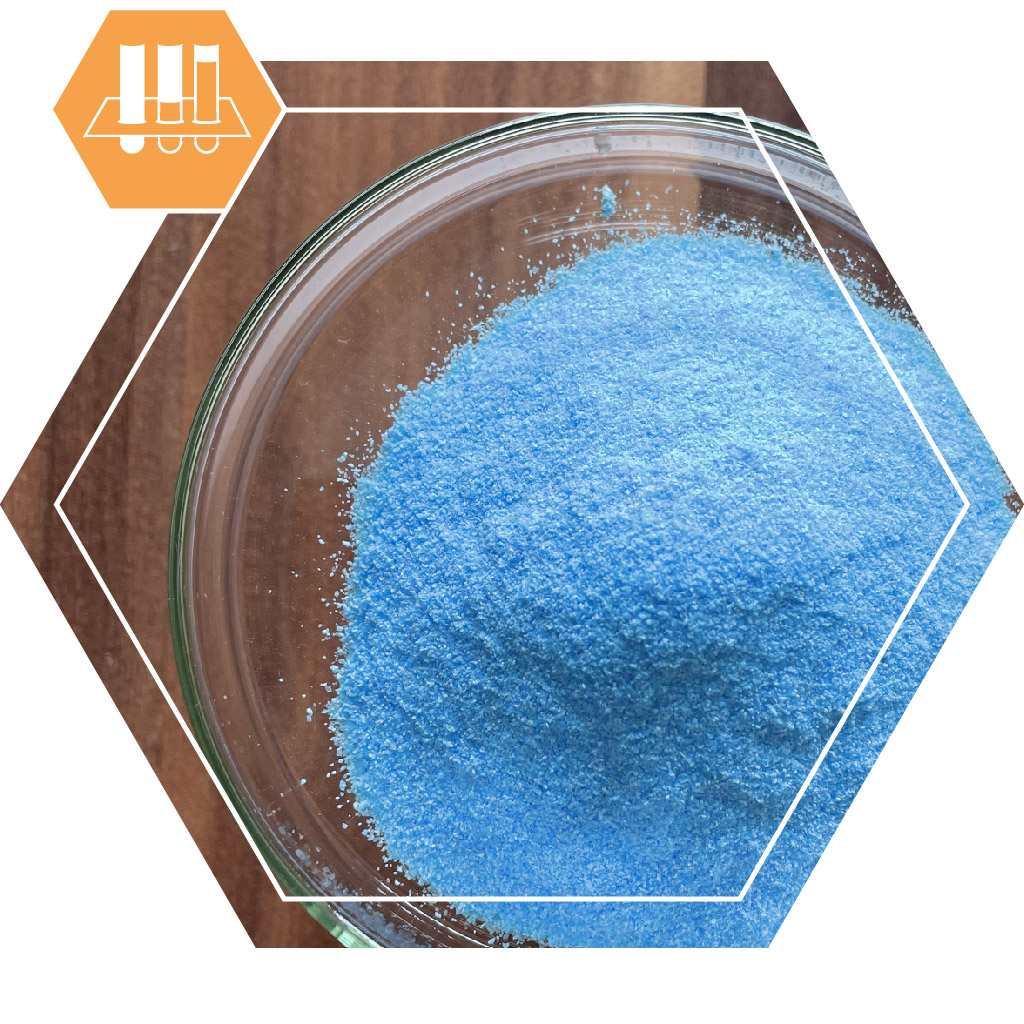Miscellaneous
Description
Copper (II) sulfate (T) is a substance used in experiments, for education, research, development and relaxation.
Use
Like many other salts, Copper (II) sulfate (T) lends itself to precipitation experiments.
Since copper sulfate in anhydrous form is white, it is a widely used water reagent. By incorporating water in the crystal structure, it turns blue.
Nails and other iron objects can be easily copper plated, with or without the use of direct current. It will not be easy to get a good protective layer, but it is very suitable as an experiment.
Making an ink with copper sulfate and tannic acid is less common than with iron salts and tannic acid, but it works just fine. This ink is reddish brown.
A chemical garden can be made from a 5% copper sulfate solution; adding grains of Potassium ferrocyanide induce the growth of funny shapes.
Copper sulfate can be used to detect sugars as part of Biuret Reagent and Fehlings Reagent.
In addition to these, there are many other applications: in electric cells, experiments with color envelopes, formation of complex salts, etc.
Properties
We supply Copper (II) sulphate (T) as blue (i.e. hydrous, pentahydrate) crystal powder. It can form clumps. Technical purity, the content has not been determined.
Hazards
Copper (II) sulfate (T) is a hazardous substance under REACH / CLP legislation with the following warnings:
WARNING
H302 - Harmful if swallowed.
H315 - Causes skin irritation.
H319 - Causes serious eye irritation.
H400 - Very toxic to aquatic life.
H410 - Very toxic to aquatic life with long-lasting effects.




